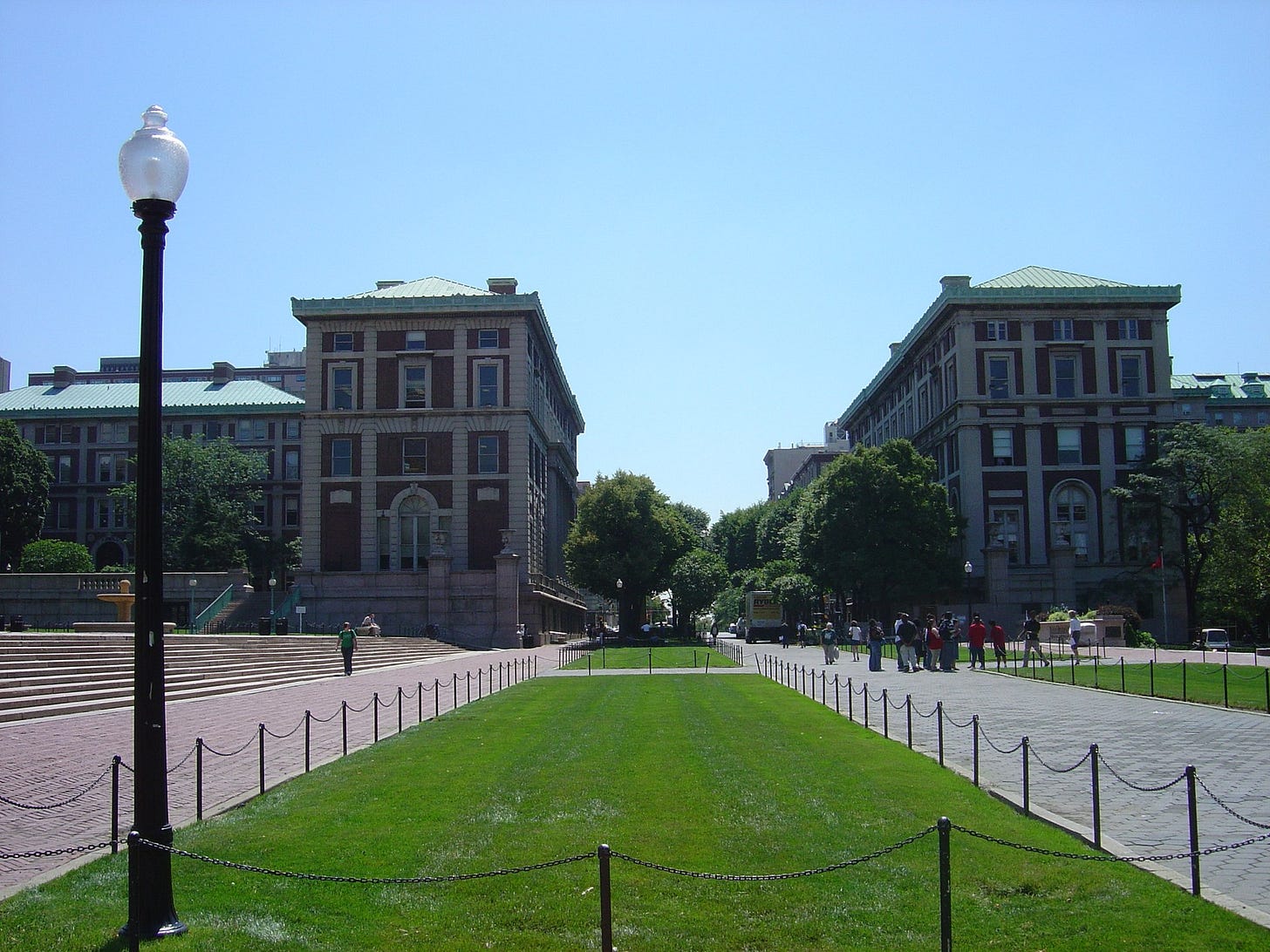Student Protestors Aren’t Elites
That’s why elite administrators, congresspeople, and donors hate them.
Politicians, pundits and other professional complainers love to complain about elite college students. These wealthy slackers, we are told, are decadent parasites, insouciantly weaving feminist baskets and queer environmental impact statements when they should be hard at work adopting traditional gender roles and mining coal. The lazy, feckless, unwashed young mock your toil and your work ethic from their ivory towers. The government should do something about it.
Well, the government has, and in doing so has underlined once again that even affluent young people often have a lot less in the way of “privilege” and power than their enraged elders want to admit.
Earlier this week the president of Columbia University, Minouche Shafik, was hauled before Congress so Republicans could yell at her to crack down on pro Palestinian protestors if she knew what was good for her. Shafik did know what was good for her, and duly cracked down, siccing the New York Police Department on student protestors camping on campus grounds. More than 100 students were arrested. Many were suspended from the school, and some were evicted from their housing with virtually no notice. At least one protest leader said she was given only 15 minutes to retrieve possessions from her dorm room before being barred from campus.
The casual cruelty with which Columbia administrators rushed to do the bidding of their reactionary masters in Congress provides a quick lesson in who actually is the elite, and who is not. The students at the fancy college, it turns out, do not in fact run the fancy college. The university doesn’t treat them as bosses, and barely even as stakeholders. Instead, it treats them as subjects to be disciplined—and in disciplining them, it has a wide range of tools. Students are a kind of indentured employee; they are dependent on the university for housing, for health insurance, for the next steps in their career and life plans. If the university decides they are not sufficiently docile, it is trivially easy for the university to destroy their lives.
Everyone pretty much knows that young people have few resources and few levers of influence. We’re all aware that even supposedly rich kids don’t actually have control of their parent’s bank accounts and can be cut loose with nothing on a whim. We all know that young people have few connections and little influence compared to Congresspeople, administrators, and angry donors. And it is because people know that college students have little power that they become enraged when college students attempt to organize or demand some say in institutional or (god forbid) national policies.
The natural state of thing is for the young to stay in their place and do as they are told. When they refuse to stay in their place and do as they are told, they are being uppity and getting above themselves. That’s even more the case now as young people are increasingly less white, and as college students become increasingly less male. Young people are “elites” not because they actually have power, but because the spectacle of them asserting autonomy in any way is at odds with the way things are supposed to be. They are pretentious for the same reason that women or LGBT people or Black people are considered pretentious elites when they contradict their supposed betters. When the right people have power; that’s natural; when the wrong people, marginalized people, have power—that’s an unbearable imposition.
It's easy to make light of college student activism, and to insinuate that people attending a swanky university can’t really have anything to protest about. But young people engage in activism for the same reason other marginalized people engage in activism; they have firsthand experience of inequality and injustice, and because they are treated unequally, they don’t have a lot of other ways to demand accountability or change. The vitriol directed at young people is not because young people are powerful; it’s because they aren’t, and so their assertions of autonomy are seen as a threat to established hierarchies.
Universities are, in theory, supposed to be bastions of critical inquiry and open thought, unafraid to challenge those very entrenched hierarchies. But in fact universities are wealthy institutions embedded in networks of political and financial power. Their rich donors and their reactionary Congressional overlords expect them to police the rabble, not to free them. Columbia University is in that sense fulfilling its intended function; when its students begin to think for themselves, it is the administrators job to shut them down.



We were far from elitists, we were outraged
I have a daughter that will be starting college next year. As I read your piece I realized had she committed to Columbia she would at this point in time either sit out a year from college and resubmit all her applications or go to Columbia. I am guessing the administration was well aware of the importance of their timing.